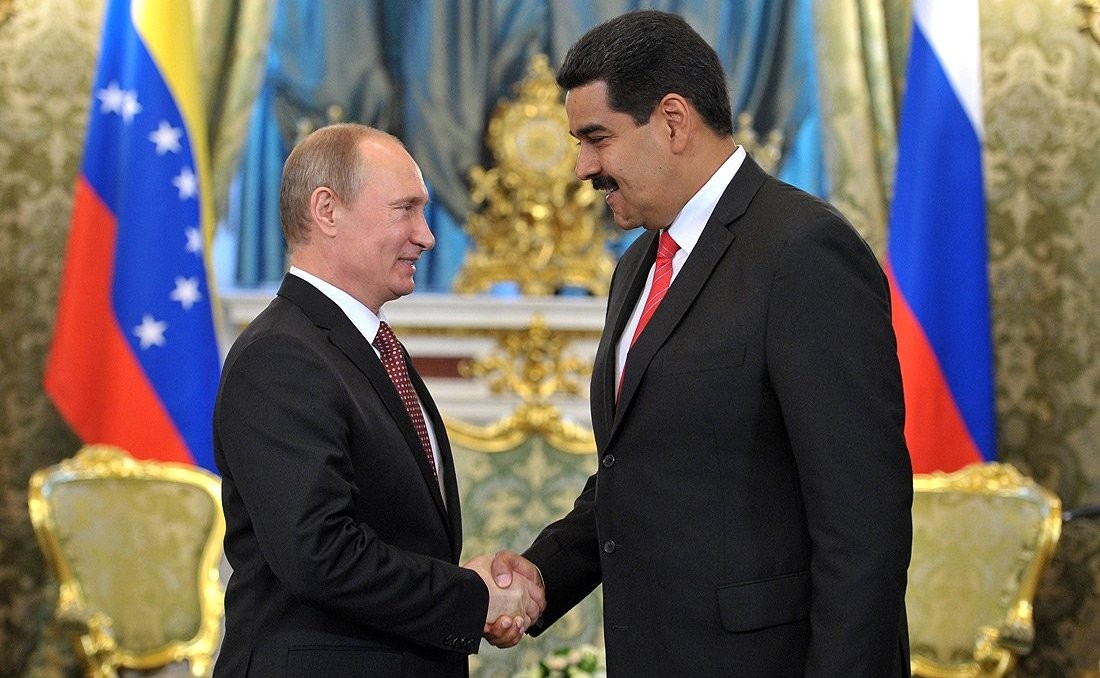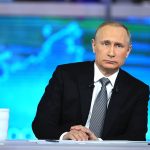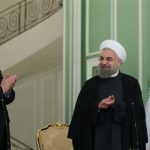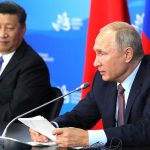by Mark N. Katz
Putin must find it not just annoying, but confusing. With Trump bent on pulling back from international engagement by disparaging NATO and announcing his intentions to withdraw from Syria and Afghanistan, a popular, democratic revolution appears to be on the verge of ousting an anti-American authoritarian government with longstanding ties to Moscow. Putin, though, does not regard these events as popular or democratic, but as orchestrated by the United States to replace a pro-Moscow regime with a pro-Washington one.
As Fiona Hill and Clifford Gaddy detailed in their 2015 book, Mr. Putin: Operative in the Kremlin, Putin sees the United States behind the democratic revolutions that occurred in Eastern Europe in 1989, Georgia in 2003, and Ukraine in 2004 and 2013-14. Putin famously blamed the demonstrations against him in 2011-12 in Russia on a signal given by Hillary Clinton. He sees what is happening in Venezuela as yet another such effort.
The problem, of course, is that he is wrong both about democratic revolutions in general and the one being attempted in Venezuela now. Whatever role the United States and other states may have played in helping these uprisings, their impetus is domestic. The authoritarian government’s own incompetence, corruption, and misrule are what have led much of the population to become fed up and demand change.
It is not at all clear whether the present political crisis in Venezuela will end either with the downfall of President Nicolas Maduro and the victory of democracy or the regime’s violent repression of the democratic opposition. However, Putin’s refusal to understand that the ongoing Venezuelan regime crisis is mainly of its own doing and not that of the United States or other external powers means that he either does not appreciate or is downplaying the risks of Moscow’s continuing to support Maduro.
The Venezuelan opposition leader, Juan Guaidó, has not only attempted to reach out to the Venezuelan military but also to the Maduro regime’s foreign supporters, China and Russia. China, which has lent $50-60 billion to Caracas and has become increasingly worried about whether it will be repaid, has expressed its opposition to external (i.e., U.S.) intervention. But it has also pragmatically signaled its willingness to work with both sides in Venezuela. Even if China is not happy with the opposition taking power, Beijing wants to be able to work with it to preserve China’s economic interests. By contrast, Russia, which has lent about $17 billion to Venezuela that it also wants repaid, has come out strongly in favor of Maduro.
Should the opposition prevail, then, it is far more likely to cooperate with China than with Russia. But even if the Maduro regime prevails, this could prove to be a problem for Russia. Although Maduro may be able to crush his opponents—with some Russian support—he is not going to be able to reverse the sharp deterioration in Venezuela’s economy. Putin very much wants a return on Moscow’s investments in Venezuela. But he may instead have to spend more scarce resources to keep Maduro in power over a population increasingly resentful not just of his rule but of the foreign powers supporting it. Moscow’s relations with Beijing may also be negatively affected if a Maduro regime that is increasingly dependent on Moscow is unable to make good on what Venezuela owes China.
It is still not clear whether the Trump administration will adopt a deft approach to the current crisis in Venezuela—which it hasn’t shown anywhere else—that allows for a peaceful democratic transition, or whether it pursues a ham-fistedly belligerent policy that enables Maduro to rally nationalist sentiment against an American threat. The United States may not even have much of any impact on the internal drama playing out in Venezuela.
Although China appears to be hedging its bets on the outcome in order to work with either side, Putin is doubling down on its support for the Maduro regime. If Maduro falls, Russia’s ties with the new democratic government will be at risk. Even if Maduro prevails, however, Putin is going to have to expend Russian resources to keep Venezuelan’s weak regime in power, which will continue to remain vulnerable.
Neither scenario is in Russia’s interests.






Russia looks weak and foolish when the bumbling US steals a march by springing another colour revolution in Venezeula. What happened to their vaunted intelligence services? In the end, all Russia can do is issue…words. Not very helpful in an emergency situation. Russia is stamped with the scars of being long cowed by the swaggering US. Putin is an able leader with resolve but his instinct is first to cringe. It may be against its own interests but the US instinct is to push the envelope.